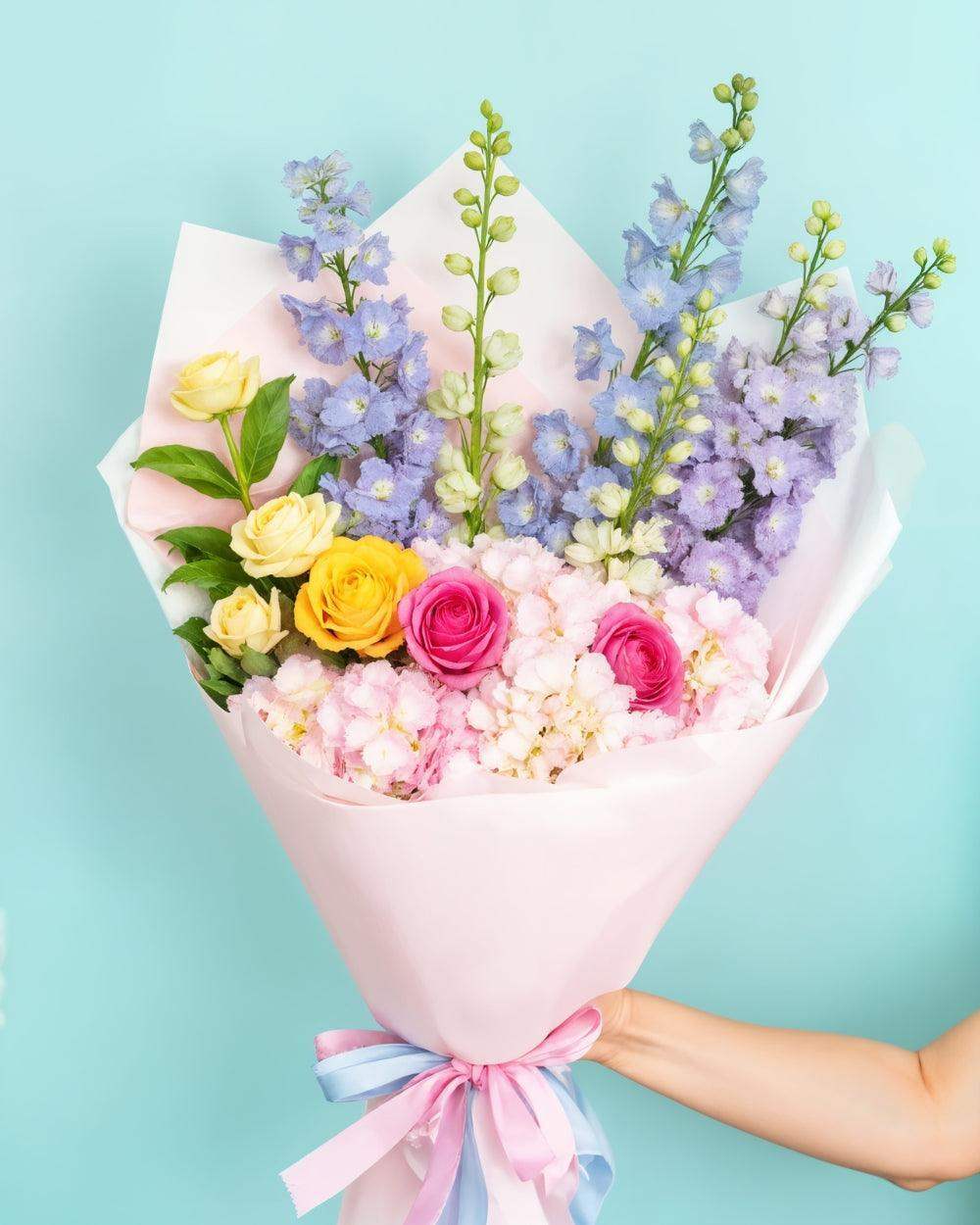How Flowers Boost Mood
In our fast-paced, often stressful lives, finding natural ways to enhance our mood and wellbeing is essential. Among the myriad of options available, flowers stand out as a simple yet powerful tool for uplifting spirits and fostering a sense of happiness. The presence of flowers, whether in our homes, workplaces, or public spaces, can have a profound impact on our emotional state. This blog post explores the various ways in which flowers boost mood, delving into the scientific, psychological, and cultural aspects of their influence.
The Science Behind Floral Mood Enhancement
Flowers have been scientifically proven to affect our mood positively. Research indicates that exposure to flowers can reduce stress, increase feelings of happiness, and even improve cognitive function. One study conducted by the University of Exeter found that flowers in the home can boost our mood and enhance our sense of wellbeing. The researchers discovered that individuals who surrounded themselves with flowers experienced a significant reduction in stress levels and an increase in positive emotions.
The colours of flowers play a crucial role in their mood-enhancing effects. Bright, vibrant colours such as yellow, orange, and pink are known to stimulate the brain and promote feelings of joy and energy. These colours can evoke positive emotions and create a lively atmosphere. On the other hand, softer hues like white and pastel colours can induce calmness and relaxation, making them ideal for creating a serene environment.
The mere presence of flowers can trigger the release of serotonin, the body’s natural mood stabiliser. Serotonin is a neurotransmitter that contributes to feelings of well-being and happiness. By elevating serotonin levels, flowers help to alleviate anxiety and depression, promoting a more balanced and positive emotional state.
Psychological Benefits of Flowers
Beyond the biochemical effects, flowers offer substantial psychological benefits. The act of caring for flowers, such as watering them or arranging bouquets, can provide a sense of purpose and responsibility. This engagement can be particularly beneficial for individuals experiencing loneliness or depression, offering a therapeutic routine that fosters a connection with nature.
Flowers also serve as a source of inspiration and creativity. Their intricate designs and vibrant colours can spark creativity, encouraging artistic expression and innovative thinking. This creative stimulation can enhance overall mental health, providing a positive outlet for emotions and thoughts.
Moreover, flowers have a profound ability to evoke memories and emotions. A single bloom can remind us of a cherished moment, a loved one, or a significant event, triggering feelings of nostalgia and happiness. This emotional resonance can strengthen our sense of identity and belonging, contributing to a more positive outlook on life.
Social and Cultural Significance
Flowers hold a significant place in many cultures around the world, symbolising various emotions and milestones. In many societies, flowers are integral to celebrations such as weddings, funerals, and festivals, acting as a medium for expressing love, gratitude, and sympathy. This cultural importance underscores the deep-seated connection between flowers and human emotions, reinforcing their role in enhancing mood and fostering social bonds.
The exchange of flowers is a universal gesture of goodwill and affection. Receiving flowers can make individuals feel valued and appreciated, boosting their self-esteem and emotional wellbeing. This act of giving and receiving flowers strengthens social connections, fostering a sense of community and mutual support.
In the workplace, flowers can improve the overall environment, making it more welcoming and pleasant. A well-decorated office with fresh flowers can enhance employee morale, increase productivity, and reduce stress levels. Flowers can create a positive atmosphere that encourages collaboration and creativity, benefiting both individuals and organisations.
Therapeutic Uses of Flowers
Flowers have been utilised in various therapeutic practices to promote mental health and emotional healing. Floral therapy, also known as flower essence therapy, involves using the essence of flowers to address emotional and psychological issues. Practitioners believe that the vibrational energy of flowers can harmonise the body’s energy fields, aiding in emotional balance and personal growth.
Aromatherapy, another therapeutic approach, often incorporates the scents of flowers to enhance mood and alleviate stress. The fragrance of flowers like lavender, jasmine, and rose is known to have calming effects, reducing anxiety and promoting relaxation. Inhaling these natural scents can trigger the brain’s limbic system, which is responsible for regulating emotions, thereby inducing a state of calmness and happiness.
Gardening therapy is yet another method where flowers play a central role. Engaging in gardening activities can provide physical exercise, mental stimulation, and emotional satisfaction. The process of planting, nurturing, and watching flowers grow can be incredibly rewarding, fostering a sense of accomplishment and connection with nature.
Enhancing Daily Life with Flowers
Incorporating flowers into daily life is a simple yet effective way to boost mood and enhance wellbeing. Placing fresh flowers in your home can create a vibrant and inviting atmosphere, making living spaces feel more comfortable and cheerful. The presence of flowers can transform a mundane room into a lively and aesthetically pleasing environment, providing a daily dose of beauty and inspiration.
At the workplace, having flowers can break the monotony of a typical office setting, introducing a touch of nature and colour. This can lead to increased job satisfaction and a more positive work environment. Additionally, flowers can act as a natural stress reliever, offering a brief moment of tranquility amidst a busy workday.
Even small gestures, such as adding a single flower to your dining table or workspace, can have a significant impact on your mood. Flowers can serve as a reminder to pause and appreciate the beauty around us, fostering mindfulness and gratitude. These small moments of appreciation can accumulate, leading to a more positive and resilient mindset over time.


